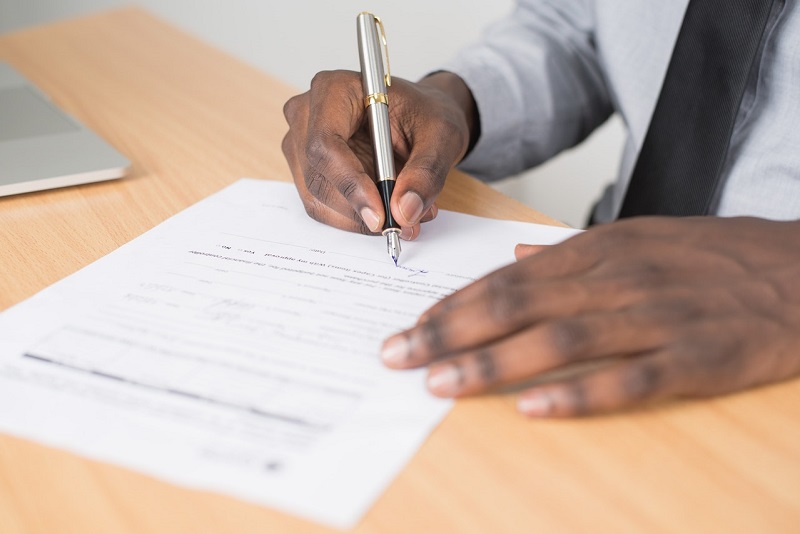When selling your boat, knowing exactly what documents you need will help finalise a smooth transaction. Without the relevant paperwork, boat buyers may be less confident when making a purchase. Preparing all the required legal documents for selling your boat will help you avoid losing the buyer to another seller. And it will help close the final sale faster, transferring ownership efficiently without any unforeseen hassle. So here are the documents you need to have ready before and after your boat sale in the UK.
Prior to sale: marine survey
Commissioning a marine survey of your boat from a professional surveyor will help to determine the condition of your boat and its actual market value. It can also help diminish a buyer’s concerns and set their mind at ease about the history of the vessel. The older and larger the boat, the more useful it is to keep this document up to date. When choosing a surveyor, make sure to choose someone who is widely accepted, has a good reputation and is very thorough. Once the survey is complete, make sure you have a copy of the full inspection to show interested buyers the complete details – digital and multiple physical copies are worth keeping to hand.

Bill of sale
A bill of sale is a document that outlines the terms of a transaction between a private seller and a buyer, legally transferring the ownership. It is perhaps one of the most important documents you will need to have ready when you’re ready to actually sell your boat. Different countries have their own requirements for a bill of sale for a vessel. In the UK, the bill of sale should include a description and hull identification number, purchase date, price, and the signature of both the buyer and the seller. Vessels registered on Part 1 of the UK Ship Register must use the Maritime and Coastguard Agency Bill of Sale to transfer ownership of the boat. (Note that not all boats require registering in the UK.) Otherwise, there are various templates available online. In any case, having a bill of sale is always wise because it can protect you legally should any future disputes arise, as well as help keep a historical record.

Warranty documentation
A warranty on a boat sale is an additional courtesy, as proof that there are no outstanding claims against the boat. New boats are sold with a manufacturer’s guarantee, but selling a used boat often happens on an ‘as-is’ basis – meaning that the buyer agrees to finalise the deal based on the condition of the boat on the day of the purchase. Some buyers may find this lack of security daunting, so for their benefit, you may want to consider including a warranty. If you do, you’ll need to consider the terms you’re willing to provide. Do you accept a return? If so, after how long a period and on what terms?
Maintenance records
No matter what type of boat you own, it’s always a good idea to keep detailed records of your regular (ideally, annual) maintenance. That includes any repainting, general maintenance or cleaning you may have done over the years. All maintenance records should be handed over to the new owner at the time of the sale. The bigger the boat, the more maintenance it requires, generally. So especially if you’re selling a boat with a cabin interior such as a cabin cruiser or a larger motor yacht with many appliances and onboard electronic equipment, this can be quite an important aspect of the sale.
Buyers will want to know how old all of the peripheral equipment is, when things like bilge pumps, engines and filters were last changed or serviced and when certain onboard devices were last updated. This can include things such as GPS maps, satellite gear and operating systems. Note: when selling a larger boat, it is usually wise to work with a yacht broker to help with all of the necessary documentation with regard to boats of that size and complexity.

Proof of loan repayment (if appropriate)
Selling a boat with a loan on it is possible as long as the buyer is okay with it, and the loan company agrees to the sale. You may want to repay your loan with the money from the sale, in which case you might consider providing additional statements from the institution you used to finance your boat. If the buyer is still uneasy, consider accompanying them to your loan provider and ask for a delegated employee to explain the process.
Other documents
Depending on your boat and your buyer, some other more specific documents may be necessary or advisable to include. In the UK, some boats for sale may also include a builder’s certificate, evidence of compliance with the Recreational Craft Directive (RCD), or evidence that the boat has domestic goods status (UK VAT paid), such as the original invoice and proof that the boat was lying in the UK at the end of the Brexit transition period. Much of this information may also be included in the bill of sale. If you’re uncomfortable writing your own bill of sale or managing other aspects of the sales process, you can always consider bringing in a yacht broker to help facilitate the process of selling your boat for you.
After the sale
Finally, you’ve sold your boat! Before you relax too much, make sure you tick off a couple of last to-dos. Firstly, remember to cancel your insurance. Some companies may be able to cancel your contract on the day of the sale. Then, when you’ve finalised the transaction and your boat is off the market, make sure to remove all your sales listings.
Ultimately, the bottom line is that being diligent about your documents is the best way to keep this process as fuss-free as possible. Paperwork is just a formality and having everything ready to go will help to make the sale quick and easy!
Find out which other aspects to consider when selling your boat – from writing a great boat listing with professional photos and videos showcasing your vessel in the best possible manner, to choosing the right online platform and communicating effectively with buyers.
Images: all from Pond5, except hands signing form by Cytonn Photography via Pexels.


